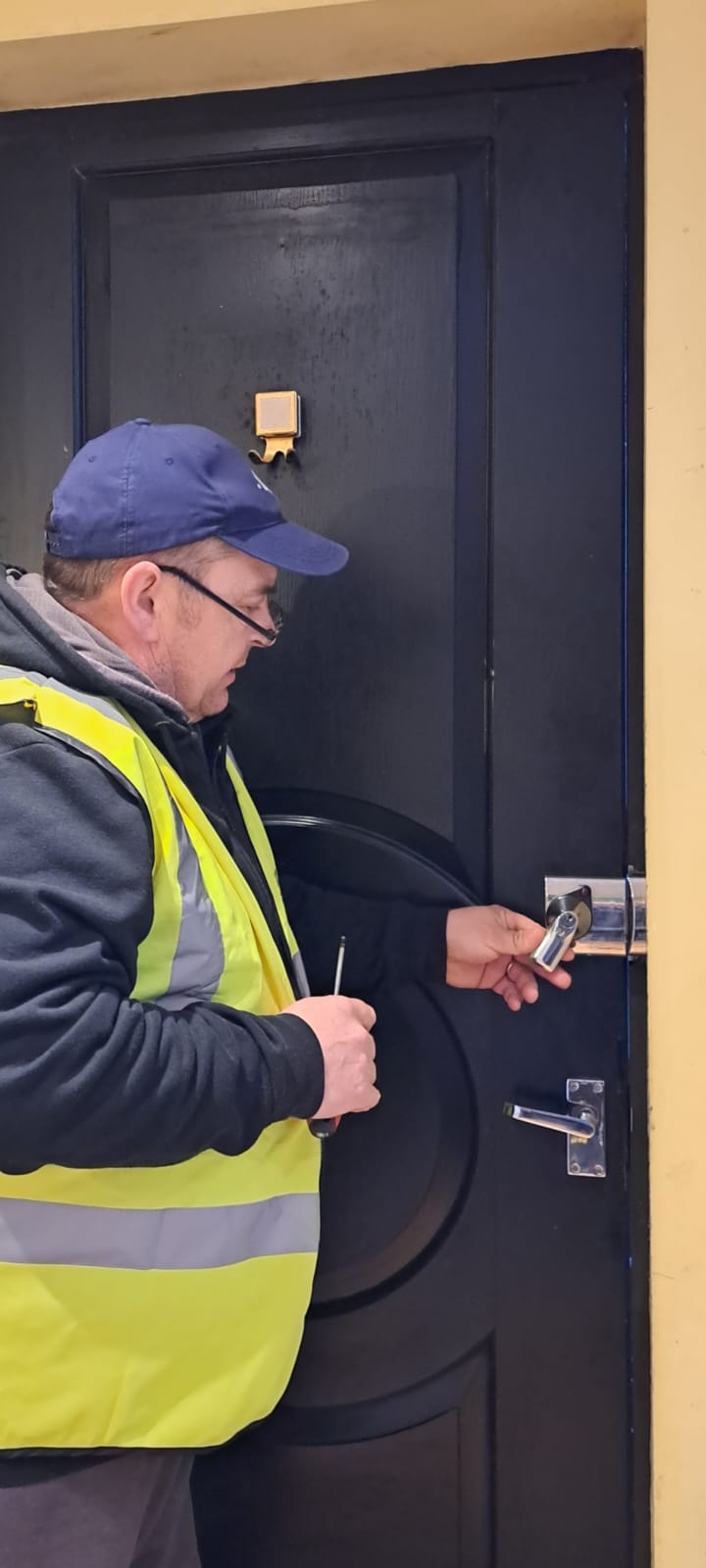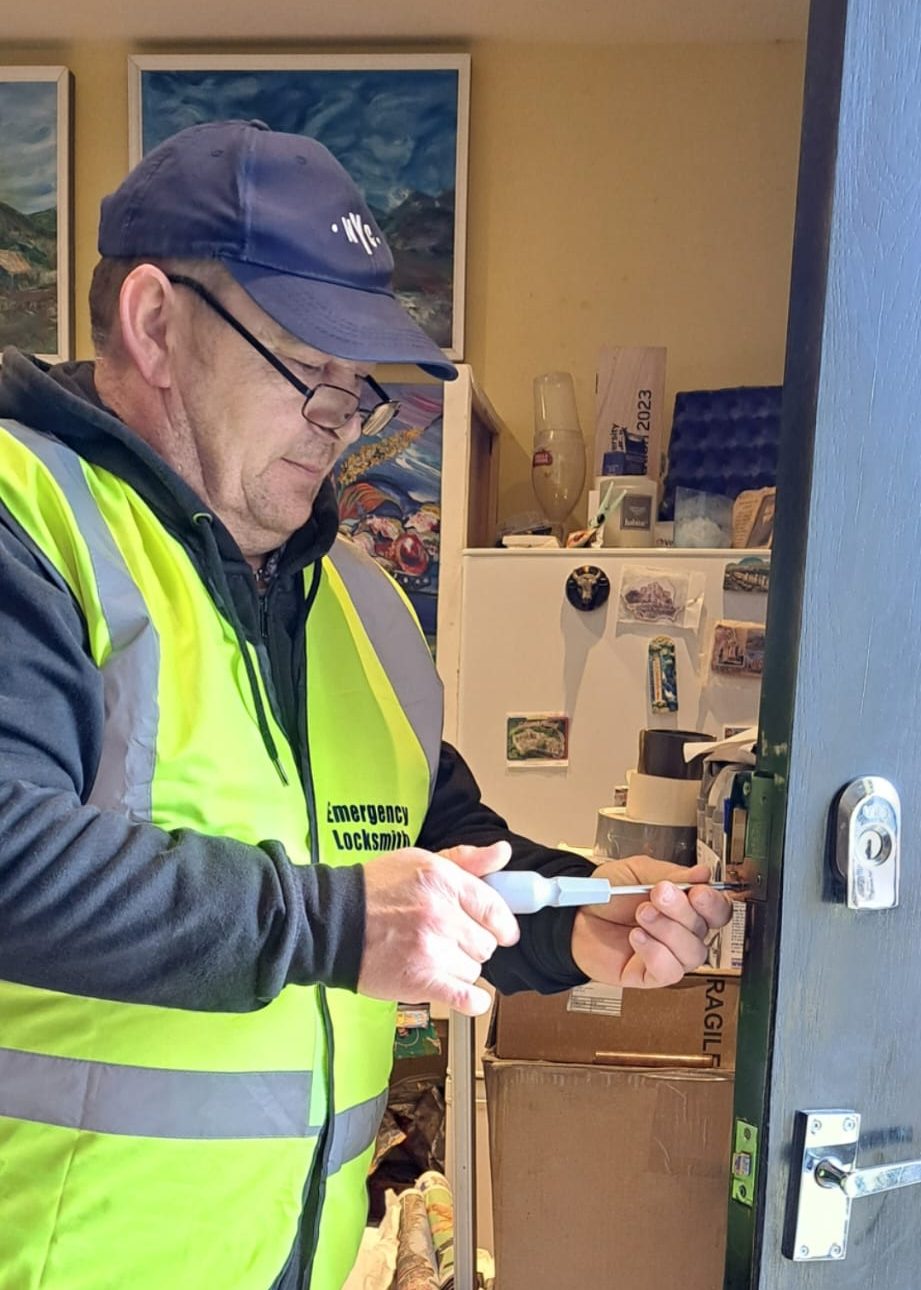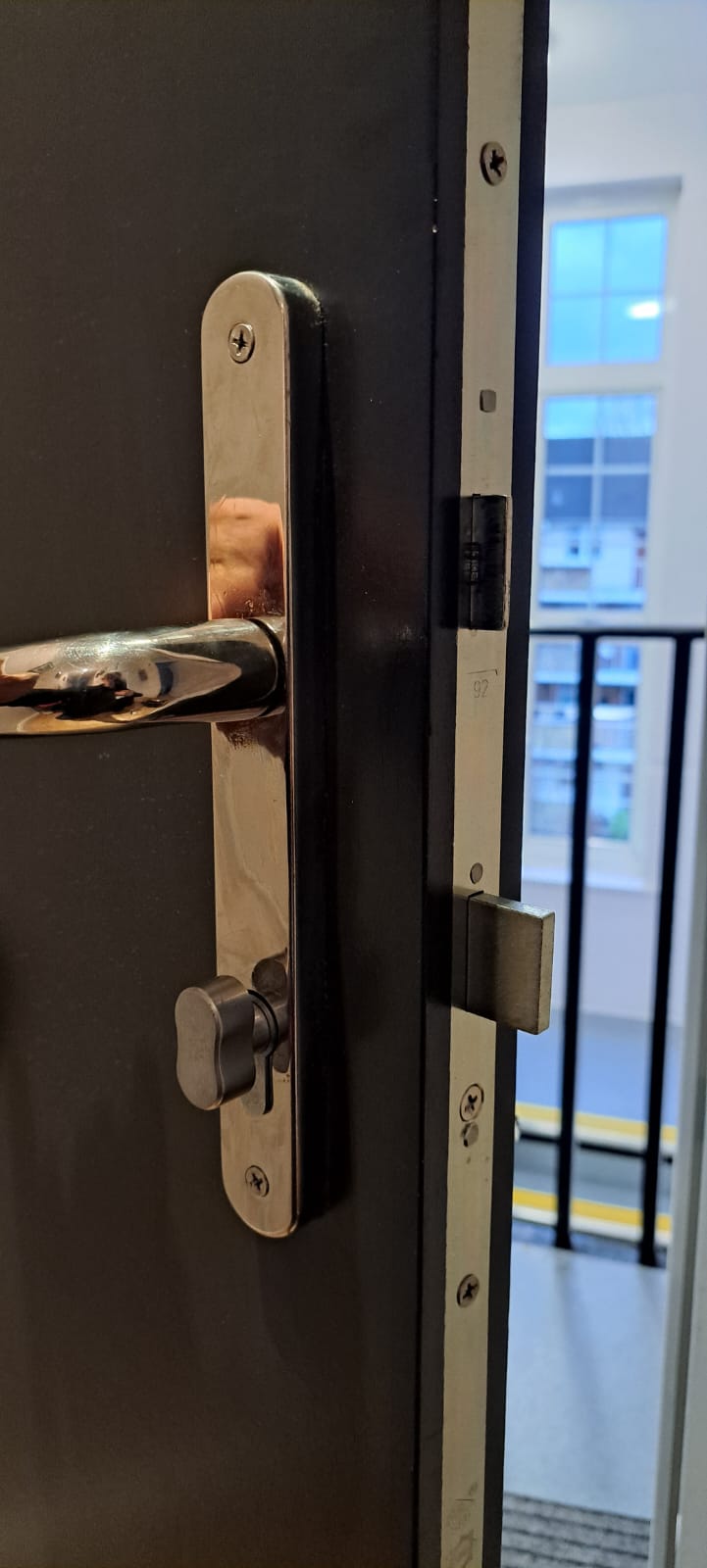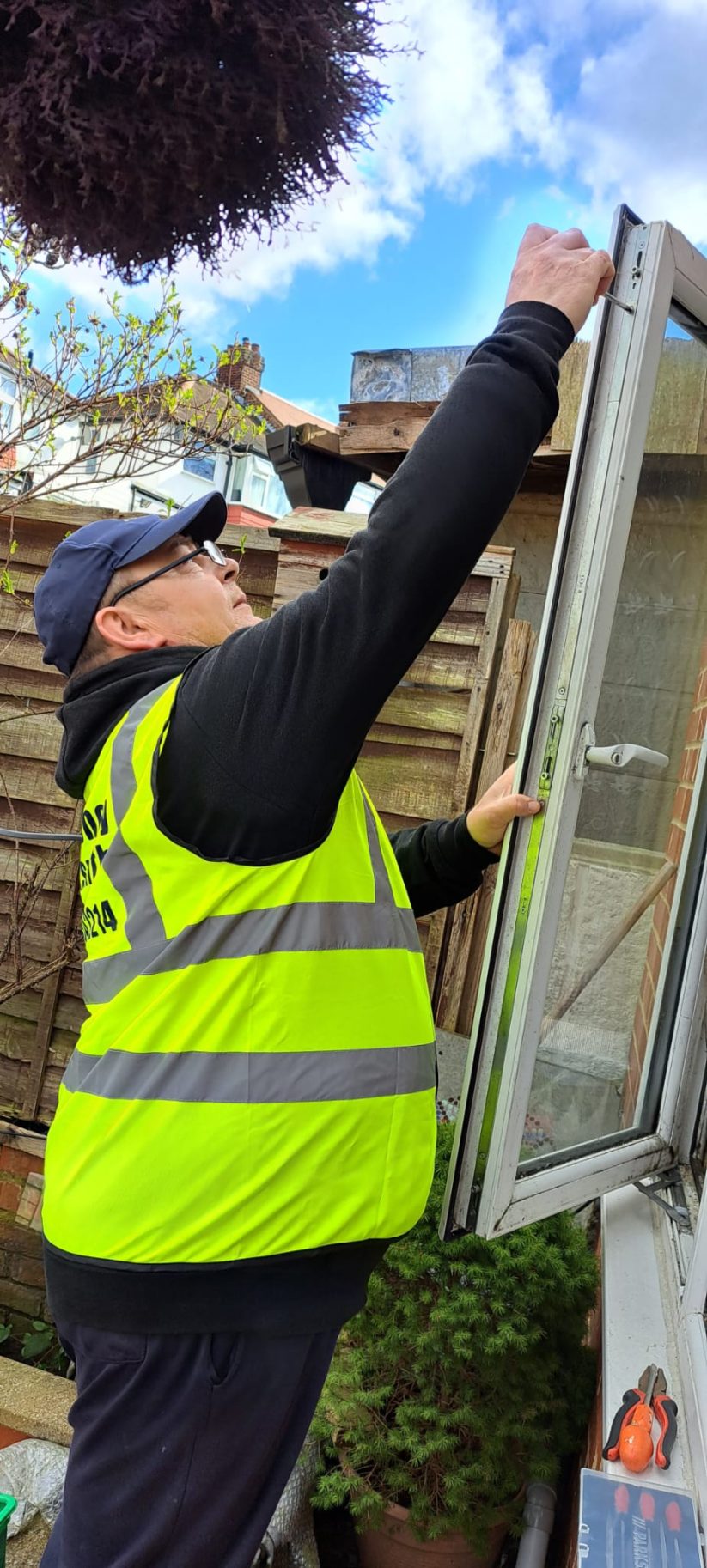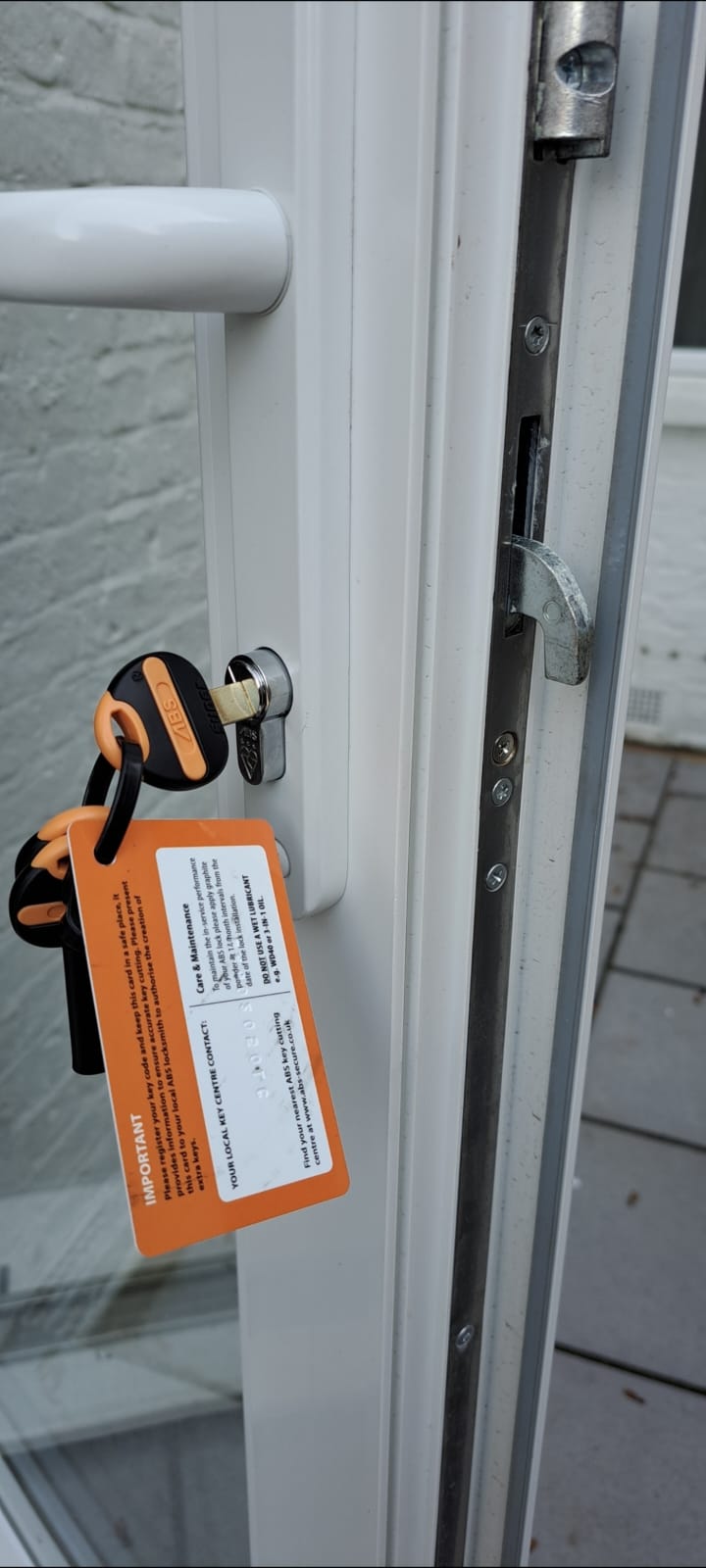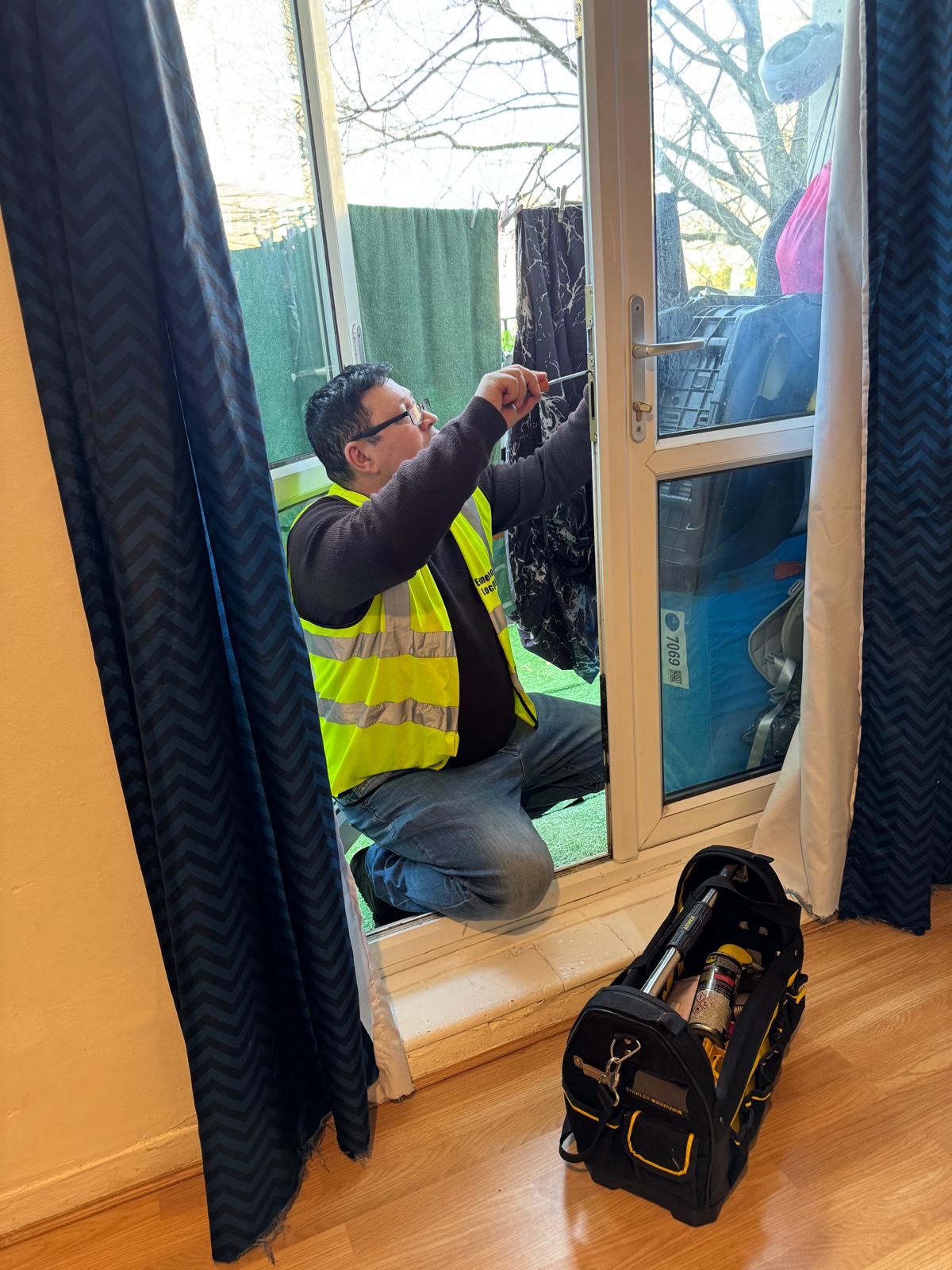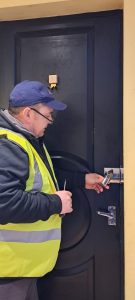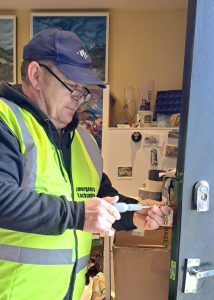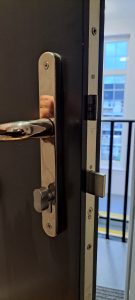| 5 Situations When You Should Call a Locksmith vs. DIY |
Life is expensive enough already. So when you run into problems with a lock, the temptation to solve it yourself is more than understandable. There’s a lot of satisfaction to be had in taking control and solving a problem yourself. Yet, sometimes what seems like the cheapest option can soon become the most expensive if things go wrong, or heaven forbid, you leave your home vulnerable to burglary.
So, how do you know whether to do it yourself or call a locksmith? Our handy guide will outline some common scenarios and offer expert advice about what to do, so you can make informed decisions that keep your property safe.
1. Locked out of your home or business
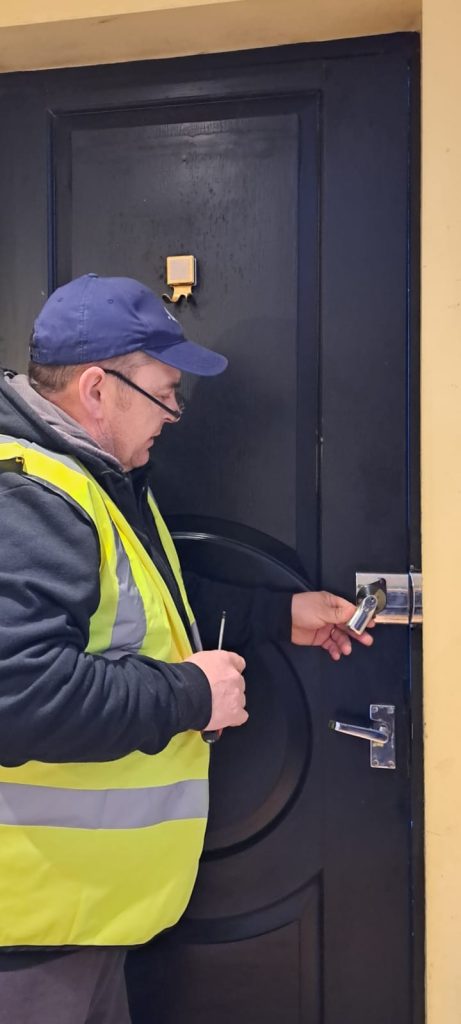
Being locked out is one of the most common and stressful security emergencies. Whether it’s your home or your business, a lockout can happen at any time. Unfortunately, it often occurs when you’re least prepared.
Furthermore, these situations aren’t just inconvenient; they can be dangerous, especially if you’re locked out late at night, in bad weather, or with children or pets inside.
The case for calling a locksmith
Being locked out of your home or business is a classic example of a situation that requires an emergency locksmith. Locksmith professionals offer 24/7 emergency services and can regain entry swiftly and without unnecessary damage, using specialist tools and non-destructive techniques. Attempting to force entry yourself can damage both the lock and door, leading to higher repair costs.
Here are some of the advantages of calling an emergency locksmith when you’re locked out.
- Many professionals offer 24/7 emergency services, ensuring you’re back in your home in no time at all.
- Master locksmiths use specialist tools to regain access without damaging your doors or locks.
- The best locksmiths in London offer rapid response, with some service providers able to reach any postcode in around 20 minutes.
The case for DIY
If you don’t have access to a spare key and there is no safe, legal, or non-destructive way to get back indoors, a DIY solution will end up being more trouble than it’s worth. Forcing the lock or breaking a window to gain access could end up costing far more in repairs than calling a locksmith.
VERDICT: Call a locksmith
Expert Tip
Always keep a trusted locksmith’s number handy and consider giving a spare key to a reliable friend or family member. Never attempt to force entry yourself, as this can cause costly damage and may invalidate your insurance.
2. Lost or Stolen Keys
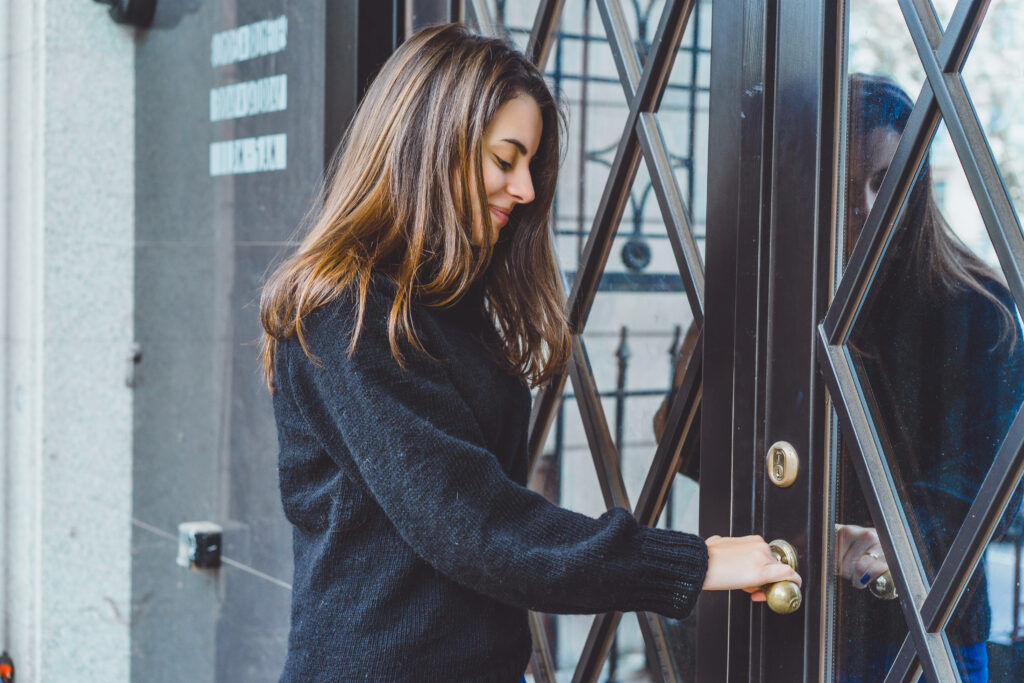
Losing your keys or having them stolen isn’t a major inconvenience. It’s also a serious security concern. If someone finds or steals your keys, they could gain easy access to your home or business. However, despite these obvious risks, according to a survey by ERA Home Security and Neighbourhood Watch, less than half of UK residents would change their locks even after losing their keys.
At the risk of stating the obvious, if you lose your keys, you don’t know where they are. That means they could be in anyone’s hands, which is enough to cause a few sleepless nights. If there is any personally identifiable information on a set of keys, the chances of a bad actor finding which house they belong to can grow, and with it, your chances of being burgled.
Insurance is another factor to consider. If someone finds or steals your keys, they could access your property without forced entry. Insurers may consider this a preventable risk. Many insurance policies include a clause that requires you to maintain reasonable security. If you don’t change your locks after losing your keys, you might be seen as neglecting this duty.
So, it’s clear that changing your locks after losing keys is important. But the real question here is whether you should call a locksmith or do it yourself.
The case for calling a locksmith
Here are some of the reasons why a locksmith is the right choice after losing your keys:
- Security risk: Lost keys can end up in the wrong hands. A locksmith can rekey or replace locks, ensuring old keys no longer work.
- Insurance compliance: Insurers may refuse claims if you don’t upgrade your locks after a security breach.
- Key control: Professionals can advise on master key systems or digital access to make future management easier.
The case for DIY
The goal of installing new locks yourself is typically to save money. However, if you have the right tools and experience, knowledge about getting the right hardware, and confidence in your ability to do a good job, DIY could be the way to go.
However, if the lock is not simple or you’re worried about leaving your home vulnerable and your insurance invalid, then this might be a job that’s best left to a professional.
VERDICT: Call a locksmith
Expert Tip
Leaving a key with a trusted friend or neighbour is a good way to ensure you have access to your home in the event of losing your keys. However, once you get back in, it’s time to think about upgrading a lock. Always upgrade to locks that meet BS3621 or equivalent standards after losing keys. Look for the British Standard Kitemark on the lock faceplate.
3. Broken, Jammed, or Malfunctioning Locks
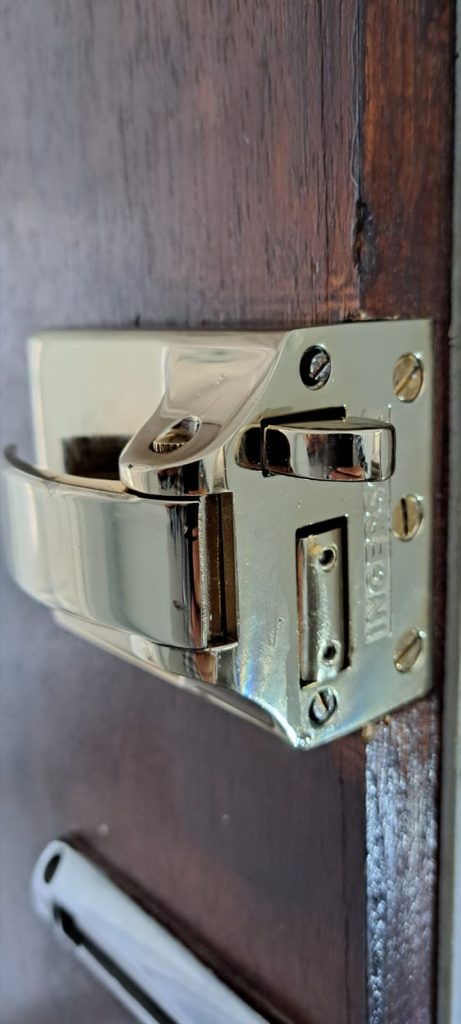
A broken or jammed lock is an operational and security risk for both homes and businesses. These issues can arise from daily wear and tear, attempted break-ins, poor installation, or even environmental factors like damp and cold, which are sadly common in the UK.
For businesses, high-traffic doors, such as main entrances, storerooms, or offices, are especially prone to lock degradation due to frequent use.
A broken lock can leave your premises at risk. According to the Office for National Statistics, 67% of burglaries in England and Wales occur through a door, and in many cases, the lock was either faulty or too weak to withstand forced entry.
Furthermore, ignoring a faulty lock can also lead to more expensive repairs down the line. For example, forcing a jammed lock can damage the door frame or the locking mechanism itself, potentially requiring a full replacement rather than a simple repair.
The case for calling a locksmith
Here are some of the reasons why you should call a professional for broken, jammed, or malfunctioning Locks
- Specialist tools and knowledge: Extracting broken keys or repairing jammed locks without causing further damage requires expertise.
- Prevent future issues: Professionals can spot underlying problems, such as misaligned doors or worn mechanisms, and fix them before they become bigger issues.
- Insurance-approved repairs: Ensures your locks remain compliant with policy requirements.
The case for DIY
Lubricating a sticky lock or tightening a loose handle is fine. But for anything more, DIY attempts can cause expensive damage.
VERDICT: If it’s a simple fix, then DIY. If it’s something more complex, call a professional.
Expert Tip
Schedule regular lock maintenance with a professional to avoid unexpected failures, especially before holidays or long absences.
4. After a Burglary or Attempted Break-In
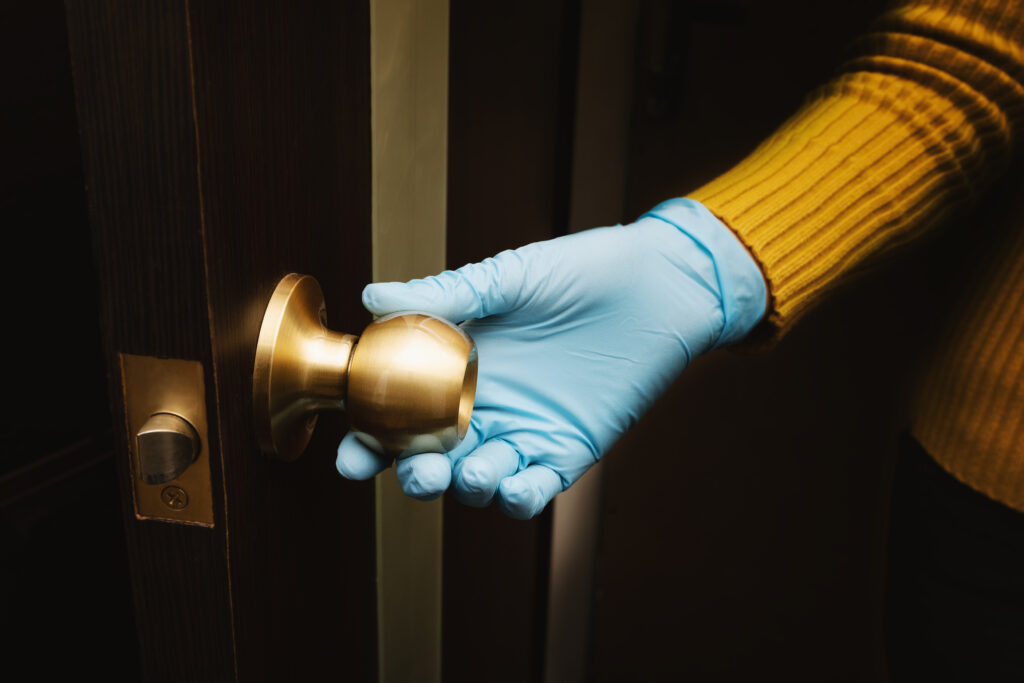
Locks, doors, and windows may be damaged after a break-in, making your property an easy target for repeat offences. Another factor to consider is the emotional impact. Victims often report feeling unsafe in their own homes. Quick action is essential.
From an insurance perspective, most policies require immediate steps to “mitigate further loss.” This means securing your property as soon as possible after an incident. According to the Association of British Insurers, prompt professional lock replacement is one of the most effective ways to restore security and satisfy insurance requirements.
The case for calling a locksmith
Here’s why you need a locksmith after a burglary.
- Immediate security upgrades: A locksmith can quickly replace compromised locks, reinforce doors and windows, and recommend anti-snap or high-security locks.
- Insurance documentation: Professionals can provide the paperwork insurers require to validate your claim and prove compliance with standards.
- Comprehensive security audit: Many locksmiths now offer full property security surveys, identifying weak points and suggesting improvements.
The case for DIY
Insurance claims often require proof of professional repairs and upgrades, so a DIY job is not recommended.
VERDICT: Call a locksmith.
5. Upgrading to Modern or Smart Locks
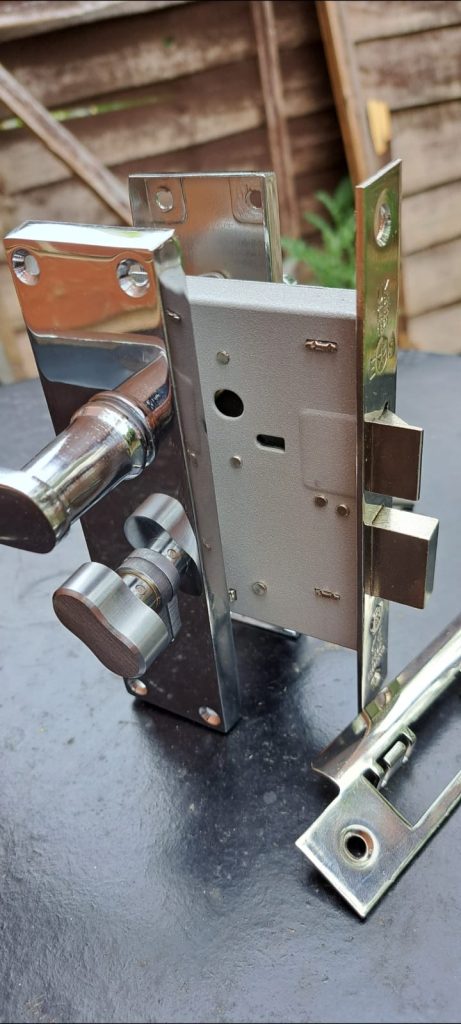
As criminal techniques to break into homes and businesses have advanced, so too have home security locks. These days, there are lots of good options for people who want high-grade security in their premises, with options like anti-snap cylinders, British Standard (BS3621) deadlocks, and advanced smart locks.
However, effectiveness of these modern anti-burglary hardware relies heavily on correct installation and integration with your existing doors and security systems.
The case for calling a locksmith
Advanced modern security systems require expertise. Here’s why a locksmith can help.
Expert knowledge: A locksmith is aware of the latest security standards and products and can advise you on what you need to meet exacting security standards.
Correct fitting and calibration: High-security and smart locks often require precise fitting to give maximum protection.
Warranty and peace of mind: If you make a significant investment in your home security equipment, it’s important that it’s backed up with a warranty.
The case for DIY
Some smart locks are designed for easy installation that wouldn’t prove too challenging to tech savvy home or business owners.
Expert Tip
Even if you decide to install a modern or smart lock, consult with a security expert for some advice and guidance to ensure the new system is suited to your needs.
VERDICT: Call a locksmith.
Final thoughts
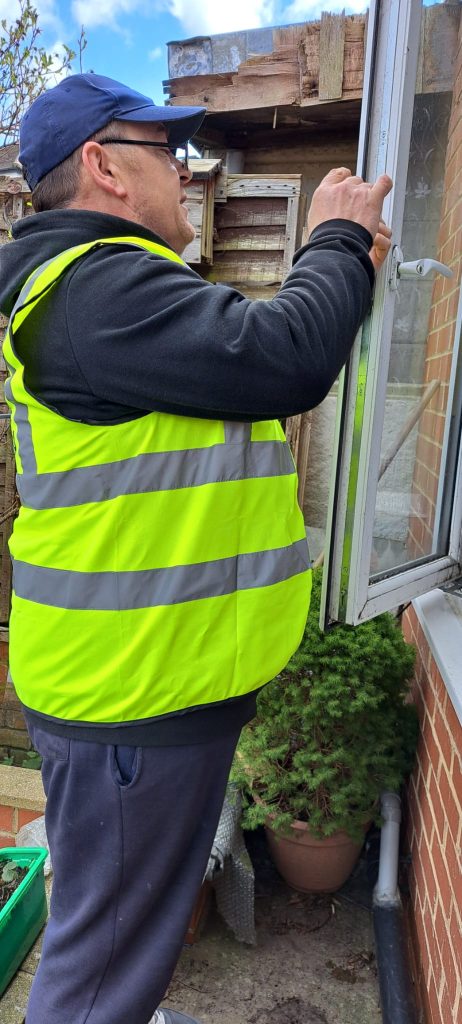
Saving money and solving problems yourself is appealing. However, some issues are hard to deal with on your own. If you’ve got the time, skills, and equipment, you can perform some locksmith tasks by yourself, but when it comes to security, taking excessive risk can put you and your premises in danger.

